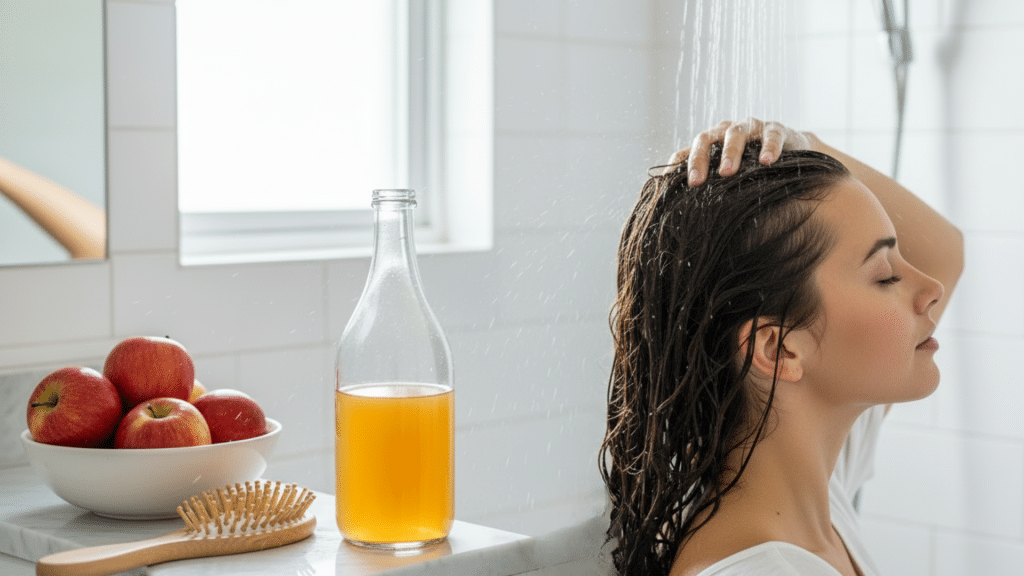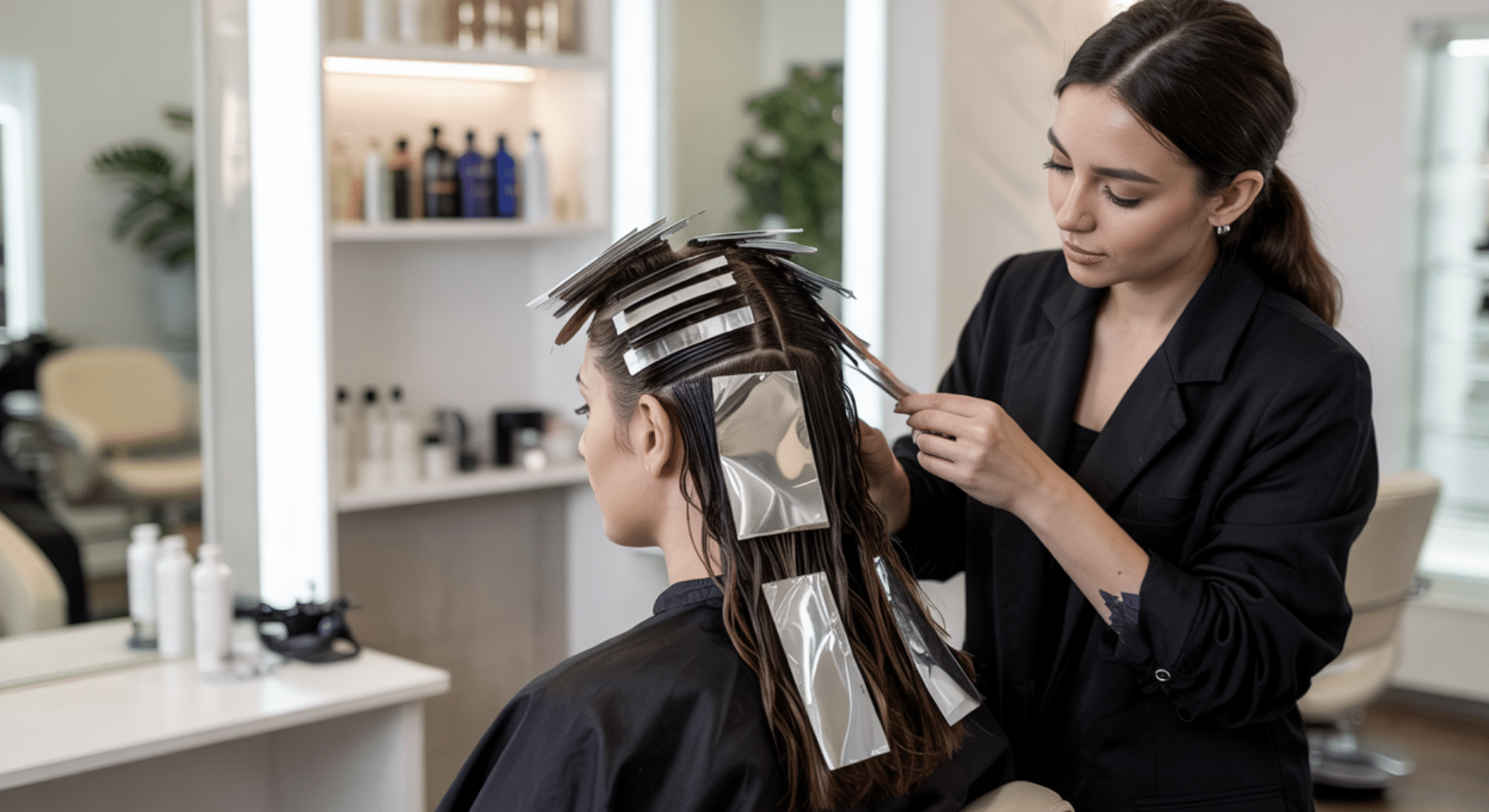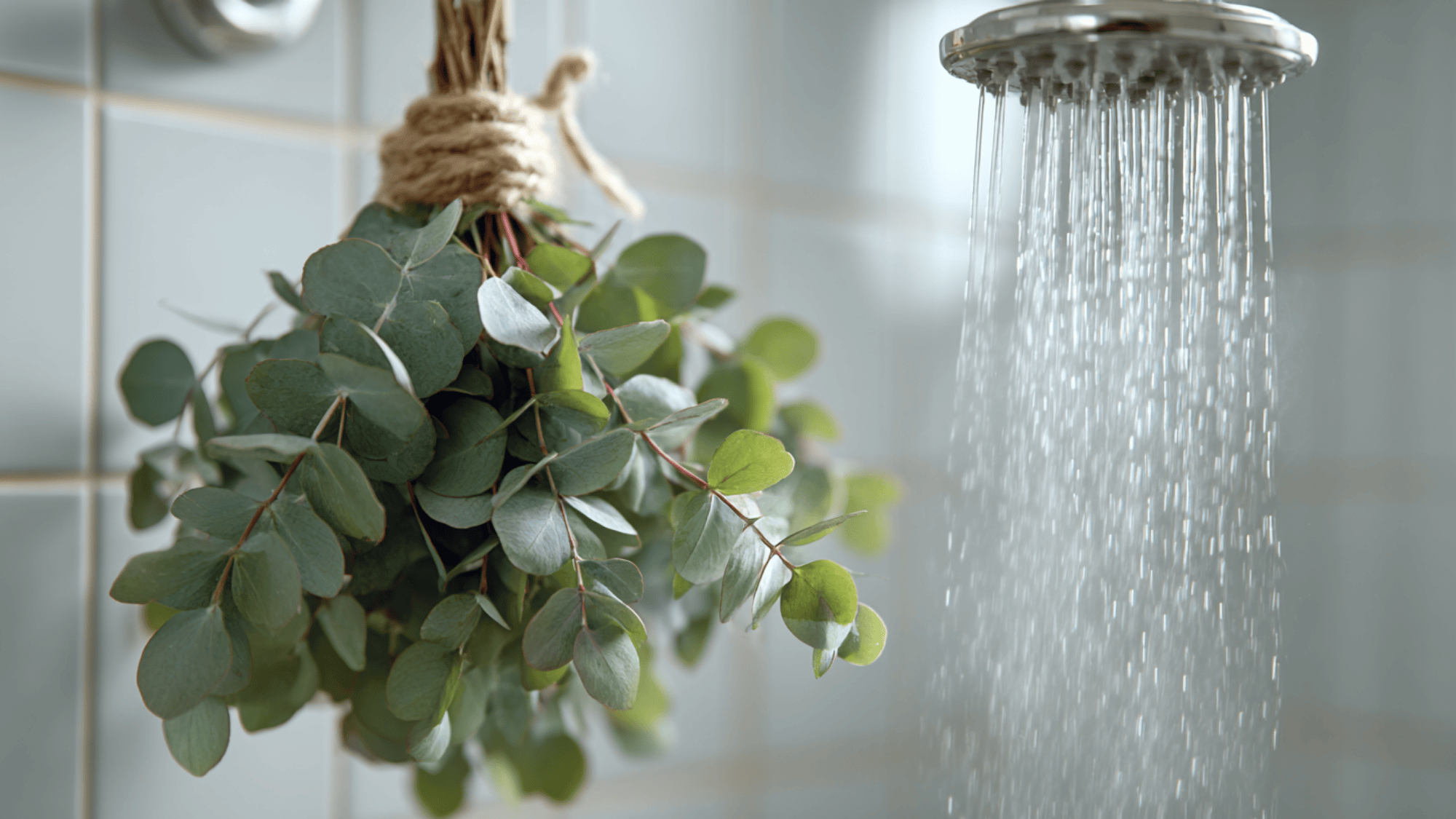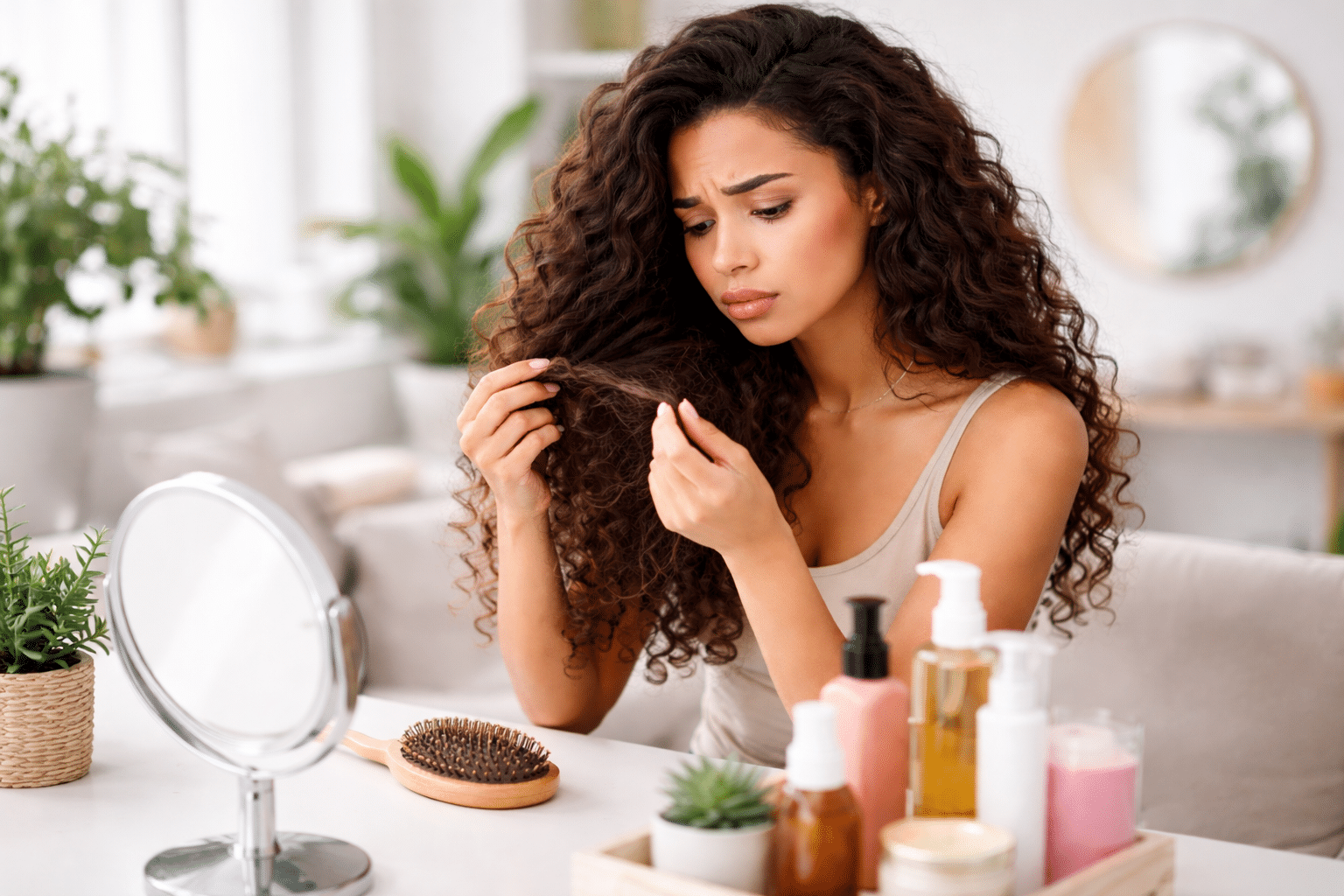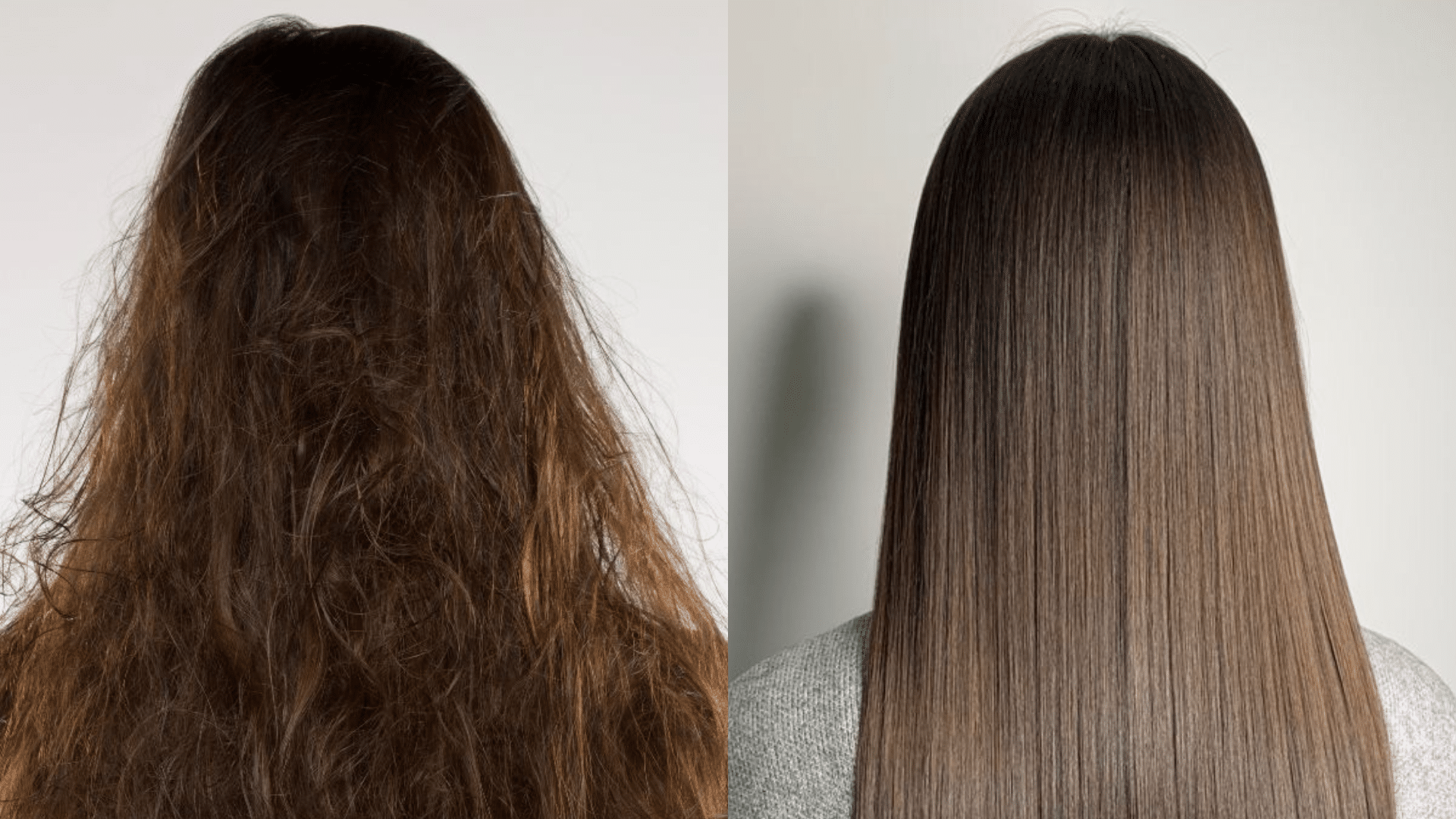Your hair products promise shine, volume, and health. But after months of use, your hair feels heavy, looks dull, and your scalp itches.
The culprit? Product buildup that no amount of expensive shampoo seems to fix. Meanwhile, dermatologists and hair professionals increasingly recommend a solution that costs under two dollars: apple cider vinegar rinses.
This simple treatment balances your scalp’s pH, strips away stubborn residue, and can transform lackluster hair into glossy, manageable strands.
Here’s why this kitchen staple is becoming a game-changer for hair health.
What is a Vinegar Rinse?
A vinegar rinse is exactly what it sounds like – a hair treatment made by mixing diluted vinegar with water. Think of it as a natural hair tonic that you pour over your hair after shampooing.
The main purpose is to cleanse and balance both your hair and scalp.
But why would anyone want to put vinegar on their hair? There are several good reasons. Vinegar rinses help balance the pH of your scalp and hair cuticles.
They also remove product buildup that can make your hair look dull. Plus, they can soften your hair and help reduce dandruff.
Benefits of Apple Cider Vinegar for Hair
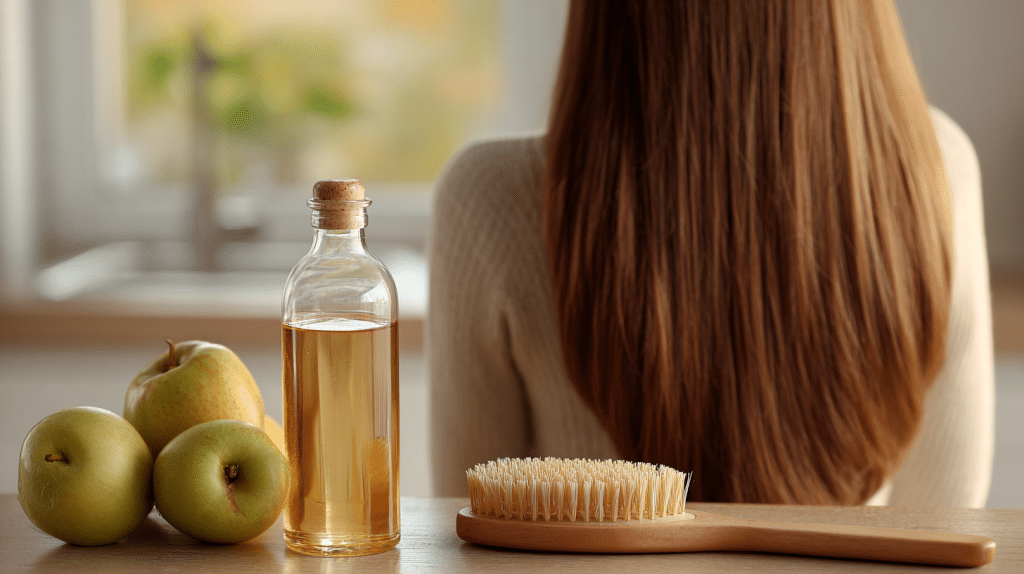
Apple cider vinegar, often called ACV, is the most popular choice for hair rinses. Here’s why it works so well:
1. pH Balance
Your hair has a natural pH level, kind of like how your skin does. When this gets out of balance, your hair can look dull and feel rough.
Apple cider vinegar helps restore the right pH balance. This makes your hair cuticles lie flat, which creates smoother, shinier hair.
2. No Product Buildup
Over time, shampoos, conditioners, and styling products can build up on your hair. This buildup can make your hair feel heavy and look lackluster.
It might even make your scalp itchy. Apple cider vinegar acts like a gentle cleanser that removes this buildup.
3. Natural Germ Fighter
Apple cider vinegar has antibacterial and antifungal properties. This means it can help fight the germs that sometimes cause dandruff and scalp irritation.
While it’s not a cure-all, many people notice their scalp feels healthier after using vinegar rinses.
4. Possible Growth Benefits
Some people believe that apple cider vinegar can help their hair grow faster and thicker. While there isn’t strong scientific proof of this, many users report positive results.
The theory is that a healthier scalp creates better conditions for hair growth.
If you have straight or curly hair, oily or dry hair, apple cider vinegar rinses can work for you. You just need to adjust how often you use them based on your hair’s needs.
How to Make an Apple Cider Vinegar Rinse at Home
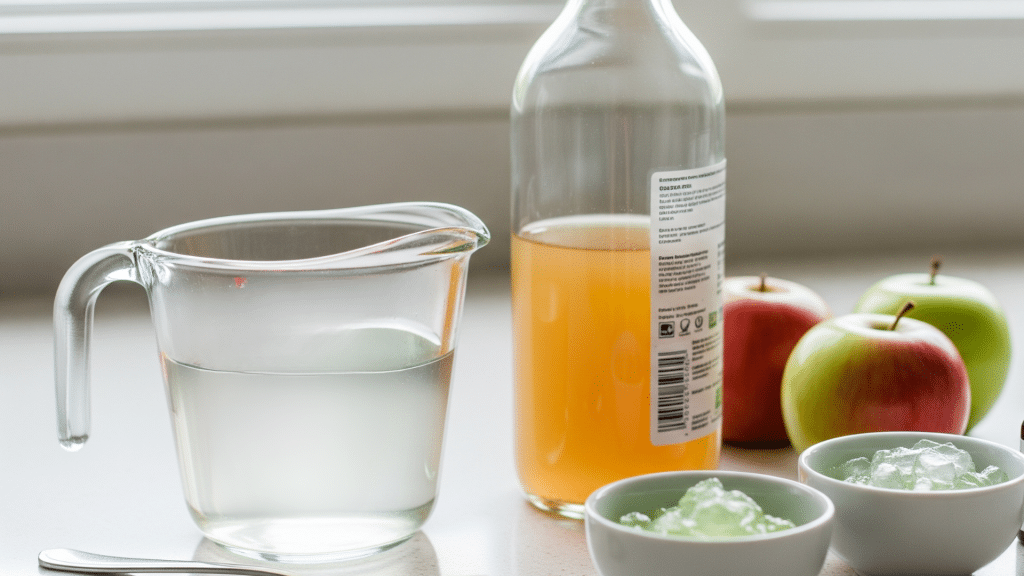
Making your own vinegar rinse is surprisingly easy. Here’s a simple recipe:
Basic Recipe:
- Mix 1 part apple cider vinegar with 4 to 6 parts water
- For example: 2 tablespoons of vinegar with 1/2 cup of water
For Sensitive Scalps:
If the vinegar smell bothers you or your scalp is sensitive, try these additions:
- Add a teaspoon of aloe vera gel for extra soothing
- Mix in a few drops of essential oil like lavender or rosemary
|
Step-by-Step Instructions:
|
How Often to Use: Start with once a week. This prevents your hair from becoming too dry. You can adjust based on how your hair responds.
How to Use Vinegar Rinse Safely
Like any beauty treatment, it’s important to use vinegar rinses safely:
- Test First: Always do a patch test before using any new hair treatment. Put a small amount of the diluted mixture on a small area of your scalp. Wait 24 hours to see if you have any reaction.
- Be Careful with Damaged Hair: If your scalp is irritated or you have cuts or scratches, skip the vinegar rinse until your scalp heals. When in doubt, ask a hair professional for advice.
- Use Cool Water: After applying the vinegar rinse, use cool water for your final rinse. This helps seal your hair cuticles and locks in the benefits.
- Don’t Skip Conditioner: While vinegar rinses can make hair softer, you might still need conditioner or leave-in treatments, especially if you have dry or damaged hair.
Other Types of Vinegar Rinses for Hair
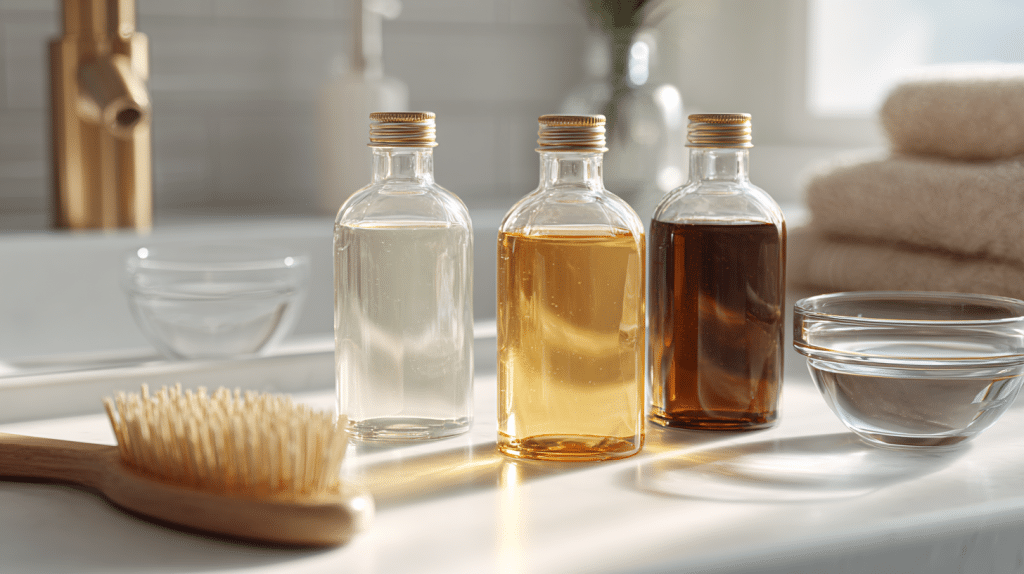
Apple cider vinegar isn’t your only option. Here are some alternatives:
1. White Vinegar
This is stronger than apple cider vinegar, so use less of it when making your rinse. It’s excellent for removing really stubborn buildup that won’t budge with gentler options.
However, it can be harsh on sensitive scalps and may cause irritation if used too frequently. Start with a very diluted mixture – about 1 part white vinegar to 8 parts water.
2. Rice Vinegar
This is gentler and has a much milder smell compared to other vinegars. It’s a good choice if you find apple cider vinegar too strong or if the smell bothers you.
Rice vinegar is popular in Asian hair care traditions and works well for fine or delicate hair. You can use it in the same ratios as apple cider vinegar without worry.
3. Malt Vinegar
Less common for hair care, but some people swear by it for adding shine. It has a distinctive, strong smell that not everyone enjoys, and it may linger longer than other types.
Malt vinegar can sometimes leave a slight brown tint on very light blonde hair. It’s best to do a strand test first if you have color-treated or very light hair.
Choose apple cider vinegar if you’re just starting out. It’s the most balanced option for most people.
Potential Downsides and Precautions
Vinegar rinses aren’t perfect for everyone. Here are some things to watch out for:
- Possible Scalp Irritation: Using vinegar rinses too often or making them too strong can irritate your scalp. This might cause dryness, itching, or redness. If this happens, use the rinse less often or make it more diluted.
- The Smell Factor: Let’s be honest – vinegar doesn’t smell great. The smell usually goes away once your hair dries, but some people find it bothersome. Adding essential oils can help mask the scent.
- Color-Treated Hair: If you color your hair, be extra careful. Vinegar can sometimes affect hair color, especially if it’s fresh. Always dilute the vinegar well and consider doing a strand test first.
Conclusion
Vinegar rinses, especially those made with apple cider vinegar, can be a simple and affordable addition to your hair care routine.
They help balance your scalp’s pH, remove product buildup, and can leave your hair looking shinier and feeling softer.
Remember to start slowly and pay attention to how your hair responds.
It’s important to remember that vinegar rinses are a supplement to your regular hair care routine, not a replacement.
You’ll still need to use shampoo, and if you have serious scalp problems, it’s best to see a dermatologist or hair care professional.
Why not give it a try? With just two simple ingredients – vinegar and water – you might discover a new favorite hair treatment that’s been hiding in your kitchen all along.

